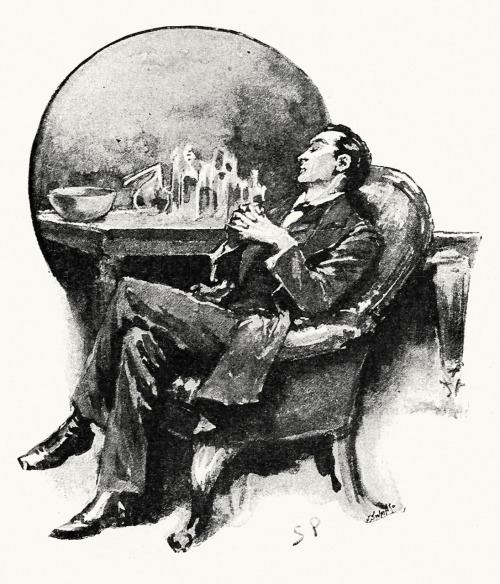My first exposure to Sherlock Holmes was probably like most children’s: I watched the Disney movie The Great Mouse Detective. Then my dad—who never read the original stories—introduced me to his favorite adaptation, starring Basil Rathbone and Nigel Bruce. And of course I saw the Wishbone episode about A Scandal in Bohemia and The Hound of the Baskervilles. I’ve always been the type of person, however, who had to read the original stories any movie was based upon, and so when I found an audiobook (specifically “old school” cassettes) of Sir Arthur Conan Doyle’s The Adventures of Sherlock Holmes at my library, I immediately checked it out.
Ignorant that Doyle wrote most of his Sherlock Holmes series in short story form, I’m afraid I listened to the cassettes out of order. The first short story I ever “read” was A Case of Identity. And I loved it. A lot. Doyle does not get enough credit for how well-written these stories are: his style is conservative, clean, crisp, playing the right notes of suspense, action, atmosphere, character, and even humor with a deft and creative hand. For that reason alone I consider his works an influence on my life: I would love to be able to write with such brilliant economy as Sir Arthur Conan Doyle.
 |
| Sidney Paget Illustration from "A Case of Identity" by Sir Arthur Conan Doyle, 1982 Source: http://25.media.tumblr.com/tumblr_ljb67d8YG41qac76ro1_500.jpg |
I’ve written before about my partiality to Dr. John H.
Watson. This doesn’t mean I in any way
hate Sherlock Holmes, however. Sherlock
Holmes’ intellect was interesting, but what really captivated my readership was
his compassion for his clients. This
aspect of Holmes is not evident in every story, as in A Scandal in Bohemia when he lobs thinly veiled insults at his
client—but in that case, the client was boorish and his case was disgraceful. And many times Holmes is portrayed as an
emotionless Brain without any sympathy for the clients. Stories like A Case of Identity, The
Speckled Band, and The Five Orange
Pips reveal a side to Holmes that gives him more facets than just The
Brain, but also show his drive to help his fellow man. Sure, he’s in it for “the puzzle,” but Holmes
could always exercise his mental powers for self-serving purposes (like his
arch foe Moriarty) or just seclude himself with his thoughts (like his brother
Mycroft). Instead, Holmes chooses to use
his gifts to help others, even when he’s out of his depth with understanding or
sympathizing with the illogical humans he takes on as clients.
The Adventures of Sherlock Holmes changed my life
because it gave me an appreciation of intelligence but also showed me that how
one uses their intelligence is what
makes them a hero. Watson is not as
smart as Moriarty or Mycroft, but he is more of a hero than either because he uses what brains he does have to help
others.
*Word of advice: Don’t read The Valley of Fear right
before going to bed unless you are a strange person who enjoys nightmares.
Recommended Reading Age: 10+
Parental Notes: The age appropriateness varies according
to short story: drinking, smoking, vaguely described violence, and some implied
references to romantic affairs Availability: Free on Kindle, but really you should own it in hardcover. Normally I restrict my book collection to one of each title, but when it comes to Holmes I collect various versions (because I like collecting the illustrations, essays and afterwords as well as the actual stories):
- The Adventures of Sherlock Holmes
- The Further Adventures of Sherlock Holmes
- The Original Illustrated Sherlock Holmes

No comments:
Post a Comment